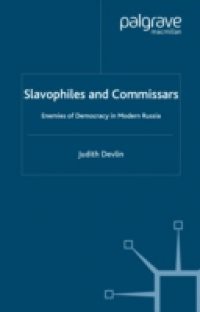Russian nationalism emerged with new force in the late 1980s in response to Gorbachev's reforms. Glasnost enabled nationalism to be expressed and it provided an ideological bulwark against change at a time when the old ideological verities of the Soviet Union were increasingly challenged and discredited. Exhumed in the pages of the literary periodicals under glasnost, Russian nationalism was characterized by its hostility to the West and its liberal and democratic political heritage, stressing the primacy of the state over the individual. Despite adopting many of the attitudes and preoccupations of nineteenth-century Russian nationalism (including not infrequently xenophobia and anti-Semitism), it was increasingly espoused by many opponents of reform and liberalization in the late Soviet and post-Soviet period. It is with the development and impact of this outlook on modern Russian political life that this book is concerned.

